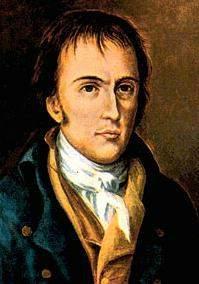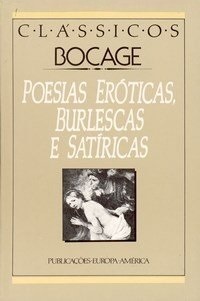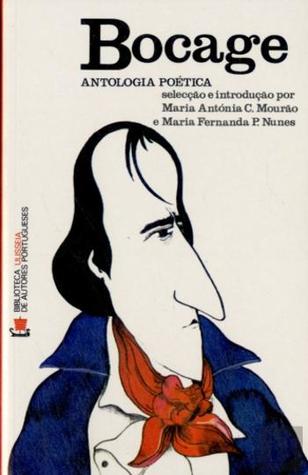Manuel Maria Barbosa du Bocage

Bocage was born in the Portuguese city of Setúbal, in 1765, to José Luís Soares de Barbosa and Mariana Joaquina Xavier l'Hedois Lustoff du Bocage, of French family.
Bocage began to make verses in infancy, and being somewhat of a prodigy grew up to be flattered, self-conscious and unstable. At the age of fourteen, he suddenly left school and joined the 7th Infantry Regiment; but tiring of garrison life at Setubal after two years, he decided to enter the Navy. He proceeded to the Royal Marine Academy in Lisbon but instead of studying he pursued love adventures, and for the next five years burnt incense on many altars, while his retentive memory and extraordinary talent for improvisation gained him a host of admirers and turned his head.
The Brazilian modinhas, little rhymed poems sung to a guitar at family parties, were very popular at the time, and Bocage added to his fame by writing a number of these, by his skill in extemporizing verses on a given theme, and by allegorical idyllic pieces, the subjects of which are similar to those of Watteau's and Boucher's pictures. In 1786 he was appointed guarda-marinha in the Indian navy, and he reached Goa by way of Brazil in October. There he came into an ignorant society full of petty intrigue, where his particular talents found no scope to display themselves; the glamour of the East left him unmoved and the climate brought on a serious illness. In these circumstances he compared the heroic traditions of Portugal in Asia, which had induced him to leave home, with the reality, and wrote his satirical sonnets on The Decadence of the Portuguese Empire in Asia, and those addressed to Affonso de Albuquerque and D. João de Castro. The irritation caused by these satires, together with rivalries in love affairs, made it advisable for him to leave Goa, and early in 1789 he obtained the post of lieutenant of the infantry company at Damão, India; but he promptly deserted and made his way to Macau, where he arrived in July-August. According to a modern tradition much of the "Lusiads" had been written there, and Bocage probably travelled to China under the influence of another classic Portuguese poet, Luís de Camões, to whose life and misfortunes he loved to compare his own. Though he escaped the penalty of his desertion, he had no resources and lived on friends, whose help enabled him to return to Lisbon in the middle of the following year.
Once back in Portugal he found his old popularity, and resumed his vagabond existence. The age was one of reaction against the Marquis of Pombal's reforms, and the famous intendant of police, Pina Manique, in his determination to keep out French revolutionary and atheistic propaganda, forbade the importation of foreign classics and the discussion of all liberal ideas. Hence the only vehicle of expression left was satire, which Bocage employed with an unsparing hand. His poverty compelled him to eat and sleep with friends like the turbulent friar José Agostinho de Macedo, and he soon fell under suspicion with Manique. He became a member of the New Arcadia, a literary society founded in 1790, under the name of Elmano Sadino, but left it three years later. Though including in its ranks most of the poets of the time, the New Arcadia produced little of real merit, and before long its adherents became enemies and descended to an angry warfare of words. But Bocage's reputation among the general public and with foreign travellers grew year by year. Beckford, the author of "Vathek", for instance, describes him as a pale, limber, odd-looking young man, the queerest but perhaps the most original of God's poetical creatures. This strange and versatile character may be said to possess the true wand of enchantment which at the will of its master either animates or petrifies.


